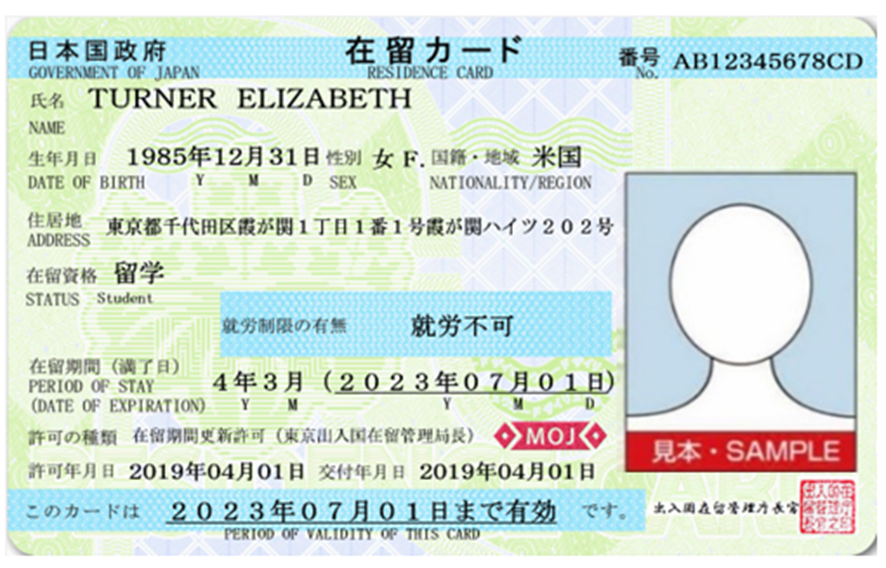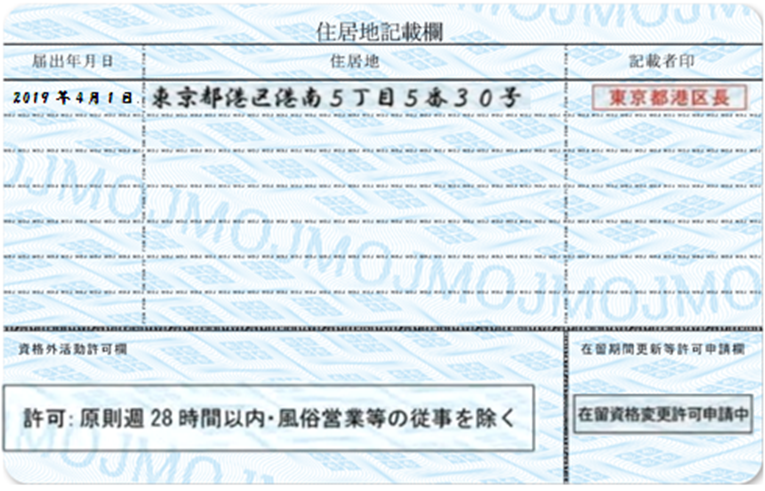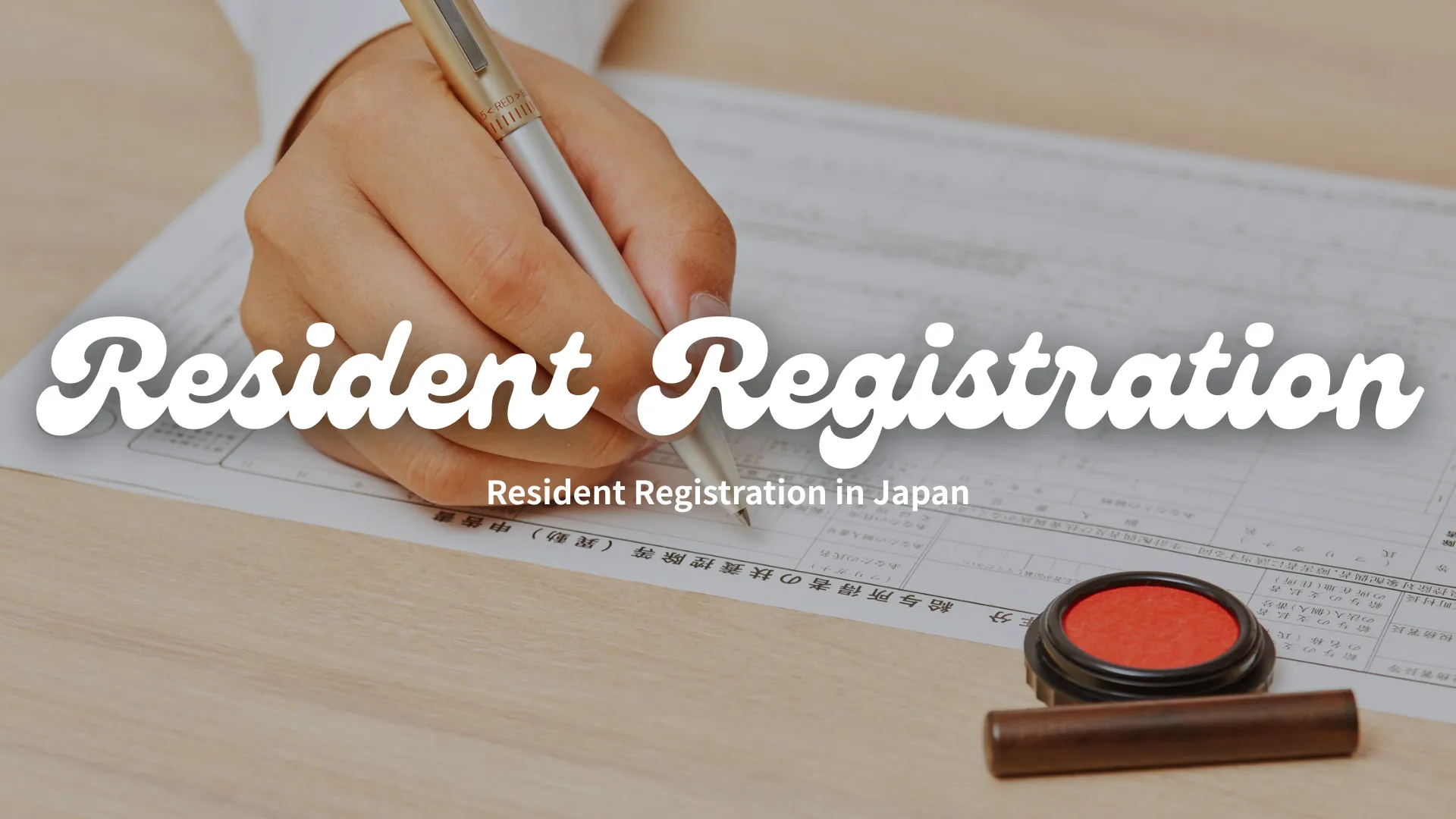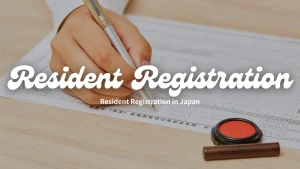Learn about resident registration in Japan for international students, including how to register your address, residence card procedures, and update rules at your city or ward office.
Want to learn Japanese in Japan? Ask any questions!
Apply with Travelife Japan to receive personalized guidance, application support, and a smoother enrollment experience.
What is Residence Card in Japan
A Residence Card in Japan is a crucial document issued to foreigners who are granted permission to stay in the country for mid- to long-term durations. This includes individuals who are in Japan for purposes such as work, study, or family reasons, and have received permissions such as landing permission, change of residency status, or extension of their period of stay. Essentially, the Residence Card serves a dual purpose. Firstly, it acts as a certificate of proof, verifying that the holder is legally residing in Japan with the appropriate residency status and period of stay. This verification is crucial for the Immigration Services Agency of Japan to affirm that an individual is staying in the country under lawful conditions.
Secondly, the card functions as a permit in its own right, replacing the traditional system where various permissions were stamped directly into a traveler’s passport. This modern approach simplifies the bureaucratic process, making the Residence Card an indispensable document for mid- to long-term residents in Japan.
The card contains vital information including the holder’s name, date of birth, gender, nationality or region, address, residency status, period of stay, and whether the holder is permitted to work in Japan. For individuals aged 16 and above, the card also displays a photograph, further personalizing and securing the document. It’s mandatory for cardholders to report any changes to this information to ensure the card remains up-to-date, reflecting the most current data about the holder’s status in Japan. This requirement underscores the card’s role in maintaining accurate records for both the individual and the Japanese government, facilitating a smooth and regulated stay in the country.



Registering Residence Card for International Students in Japan
For international students planning to study in Japan, obtaining and managing a Residence Card is a critical step. Upon arrival, mid- to long-term residents are issued this card as proof of their legal status in the country. It includes vital details such as your name, date of birth, nationality, and residency status. But what happens when any of these details change, or if you lose your card? It’s crucial to know not only how to register for your Residence Card but also how to update or replace it. This segment will guide you through the processes of registration at your local municipal office, the importance of promptly updating any changes to your information, and what to do in case your card is lost or damaged.
Things to Know about Residence Card in Japan
Carrying Residence Card
In Japan, individuals aged 16 and older who hold a Residence Card are legally required to carry it with them at all times. This card serves not only as proof of your legal status in the country but also as a primary form of identification for various official procedures, such as dealings with local government offices or when entering into contracts. The significance of carrying your Residence Card extends beyond identification purposes; it is a crucial measure to avoid legal complications. Japanese law enforcement officials have the authority to request proof of identity and legal residency at any time, and failure to present your Residence Card can lead to severe penalties, including fines up to 200,000 yen. Such an omission could also raise suspicions about your legal right to be in Japan. To mitigate the risk of these consequences, it’s advisable to memorize or note down your Residence Card number, ensuring a swift reissuance process should the card ever be lost or misplaced. This simple precaution can save you from potential legal and administrative headaches.
Updating Residence Card in Japan
Updating your Residence Card in Japan is crucial when there are changes to your personal details or residence status. This ensures that all information aligns with your current situation, maintaining your legal standing in the country. If you move, it’s mandatory to notify the municipal authorities at both your old and new addresses within 14 days, and update the address on your Residence Card. Similarly, if you’re leaving Japan permanently, this move must also be reported. For changes beyond your address, such as modifications to your name, date of birth, gender, or nationality, these updates must be submitted to the Immigration Services Agency of Japan. This process involves bringing your Residence Card to the service counter, where necessary changes will be made. Following any application for a renewal of your stay or a change in your residence status, a new Residence Card will be issued to reflect these updates. Keeping your card current is essential for a hassle-free experience in Japan.
Losing Residence Card in Japan
Losing your Residence Card in Japan is a matter that requires immediate attention, given its legal importance for foreign residents. If your card goes missing, your first action should be to report the loss at the nearest koban, or police box. These local police units not only handle community matters but also act as a central point for lost and found items, making them a potential quick fix for retrieving a lost Residence Card. In case the koban doesn’t have your card, you’ll be asked to fill out a form for lost or stolen items and receive a loss/theft certificate. This certificate is crucial, as you’ll need it to apply for a new Residence Card at an immigration center within 14 days of losing the original. During this period, the certificate serves as a temporary proof of your residency status.
Applying for a new card involves submitting a specific form, a recent photo, your passport, and the loss/theft certificate at the immigration center. The process can be time-consuming, especially during busy periods, so acting promptly is essential to avoid legal complications. Remember, maintaining a valid Residence Card is mandatory in Japan, and swiftly managing its loss can prevent potential fines or more severe penalties.
Re-Entry with Residence Card
If you plan to exit and re-enter Japan within a year (or before your residency status expires), you’re eligible for a Special Re-entry Permit. This convenient permit negates the need for a separate re-entry application, provided your absence doesn’t exceed one year and you continue the same activities upon return. However, if your stay outside Japan extends beyond a year or if your period of stay expires while you’re away, securing a Re-entry Permit before departure is essential. This permit comes in two forms: single and multiple entries, valid until the current residency expiration. Applying requires your passport, Residence Card, and a fee (3,000 yen for single, 6,000 yen for multiple entries). Always ensure to check the correct box on the Embarkation and Disembarkation Card for Re-entrants to utilize this system. This foresight in managing your re-entry permissions ensures your return to Japan is as smooth as your departure.
Returning Residence Card
For foreign nationals in Japan, returning the Residence Card upon departure is a critical step in adhering to the country’s immigration policies. Whether leaving permanently, failing to return within a permit’s validity, or holding an expired card, the card must be returned to the Minister of Justice within 14 days of its invalidation. At departure, presenting the card to an Immigration Officer for cancellation is the norm. However, if you’re leaving with the intention to return but don’t, or in the event of a cardholder’s death, the card should be mailed back to the designated address at the Tokyo Regional Immigration Services Bureau (Address Below), with “Return of Residence Card” clearly marked on the envelope.
Tokyo Kouwan Goudouchousha 9th Floor Tokyo Immigration Bureau Odaiba Bunshitsu, Oumi 2-7-11 Koutou-ku Tokyo 135-0064
Neglecting to return the card not only contravenes immigration rules but also subjects the individual to potential fines of up to 200,000 yen, emphasizing the importance of this procedure. The process ensures that your departure is recorded correctly by the immigration authorities, maintaining the integrity of Japan’s immigration system and your compliance with its regulations.

Conclusion
The Residence Card is an indispensable part of your journey as an international student in Japan, serving as a testament to your legal status, facilitating daily activities, and ensuring compliance with immigration laws. From obtaining your card to updating, replacing, or returning it, each step is vital for a seamless and enjoyable experience in Japan. By staying informed and proactive about the responsibilities that come with your Residence Card, you can focus on what truly matters—making the most of your time in this vibrant and welcoming country.
CONTACT US
For studying Japanese in Japan, please contact us.

